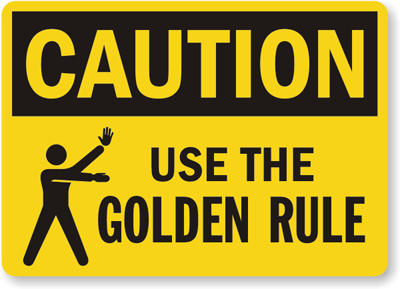As a nonprofit leader, you are faced with a tremendous challenge.
In addition to being tasked with providing leadership during a time of major change, you are also confronted with the demands of delivering results in a difficult economy.
These two circumstances can cause a lot of frustration. Why? Because you are feeling the weight of providing help for the people you want to assist or the cause you want to make a difference for.
This type of stressful situation can be emotionally, mentally, and physically draining. When these negative influences are triggered, your professional performance and ability to provide positive leadership can be compromised.
Many nonprofits have respite programs to offer relief to overloaded caregivers providing care for a single beneficiary. You have the same need as a compassionate caregiver, only yours is multiplied many times over.
So how do you deal with the proliferation of personal and professional pressures created by change and challenging times?
My suggestion is to apply Hardy’s Golden Rule for Nonprofit Leaders: Do for yourself what you do for others.
You need to benefit from the same commitment to compassion and caring that you give to your priority cause.
It’s not about being selfish. If you aren’t performing at your best, your organization’s all-important mission won’t be achieved.
Just working harder isn’t always the answer.
Here are four action steps that can provide relief to the stress that could be impacting your performance.
- Ask for help. Often we are our own worst enemy when faced with a difficult problem. Letting ego and pride get in the way of asking for help is counterproductive. For example, members of the National Speakers Association are encouraged to participate in master mind groups of colleagues that offer problem solving, performance accountability, and professional support. Likewise, you should identify peers whom you can turn to for advice, mutual support, and collaborative effort to develop needed solutions.
- Benefit from life balance. For maximizing your personal productivity, there are essential basics you must commit to: such as, exercise, good diet, and actually taking time away. Allowing for personal rejuvenation is a stress buster and stimulates creativity in a time when innovation is critical. Consider possible nonproductive habits you need to eliminate, and good habits you need to capitalize on better.
- Utilize a team strategy. Share the load, and benefit from the strength of individuals working together. Take advantage of the experience of others in your organization and their diverse ideas: solicit input and recognize contributions members of your team are making. Help your team help you by eliminating barriers that restrict productivity, and instead, cultivating creative thought from them. Practice effective communication techniques to keep everyone informed and focused on responding to the challenge at hand.
- Take a small-actions approach. Chip and Dan Heath, authors of Switch, write that sometimes a problem seems so overwhelming that the solution may be paralyzing. They advocate taking small incremental actions that ultimately produce a cumulative effect. The Heaths also encourage celebrating small successes – your own and others’. It generates personal motivation to do more.
Apply Hardy’s Golden Rule for Nonprofit Leaders: Do for yourself what you do for others. You will be much better equipped to effectively respond to the pressures of change and challenging times that are now affecting nonprofit professionals.
